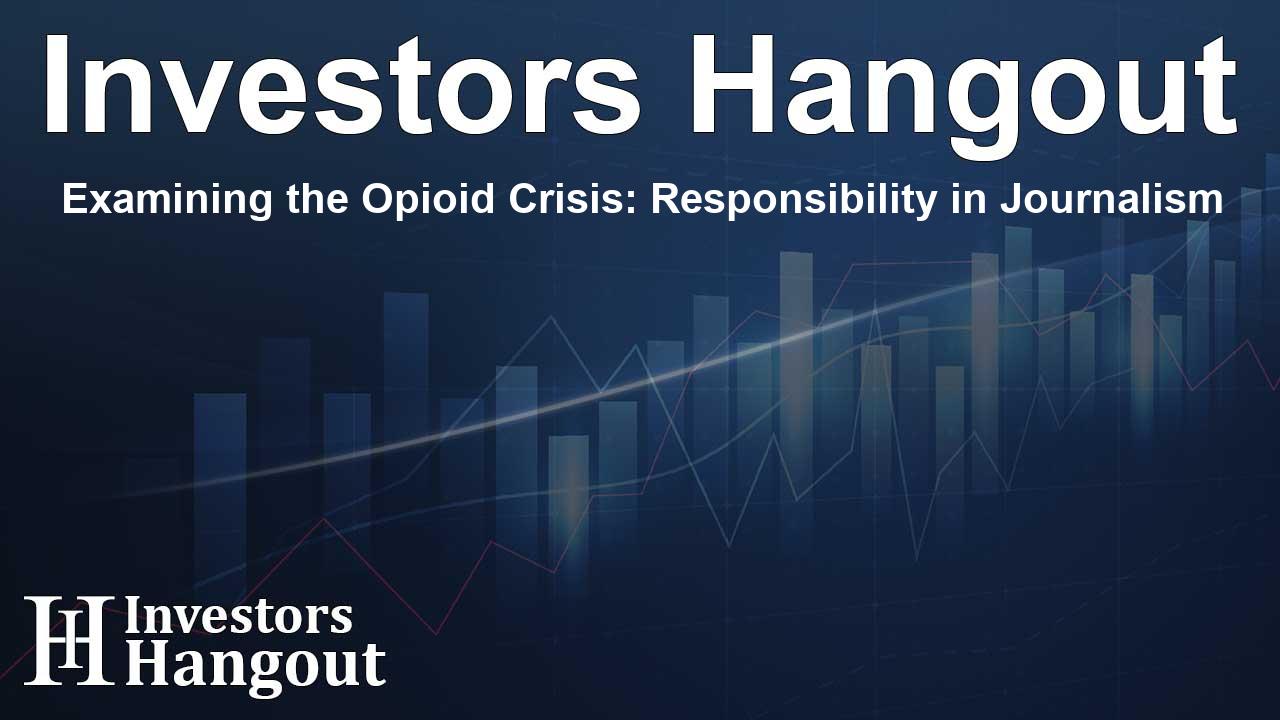Examining the Opioid Crisis: Responsibility in Journalism

Understanding the Role of Journalism in the Opioid Crisis
The impact of the opioid epidemic, particularly within the construction industry, has drawn considerable attention in recent years. Journalistic pieces on this topic often highlight the severe consequences faced by workers and companies. Recent incidents have shown the importance of ensuring that claims are verified before they are published, as failure to do so can erode trust in journalism.
The Sensational Narrative and Its Pitfalls
A striking example of sensationalism in journalism occurred when a prominent news outlet published alarming claims about opioid overdoses at construction sites. This narrative suggested carelessness on the part of contractors, implying that they fostered an environment where such tragedies could occur. However, upon reflection, the validity of these claims came into question, revealing the need for responsible journalism that prioritizes factual accuracy over gripping narratives.
The Importance of Verification
Verification is a cornerstone of journalistic integrity. When a claim is presented without solid backing, it can have lasting repercussions for those involved. In the construction industry, where safety and reputation are paramount, unverified allegations can lead to public distrust and potentially impact a company's operations. The need for robust evidence before publication cannot be overstated.
Recognizing Patterns in Reporting
Reports that rely excessively on sensational details while neglecting thorough fact-checking can lead to a concerning trend in journalism. There is a pattern where certain journalists emphasize dramatic narratives at the expense of substantiated claims. This approach not only undermines individual articles but can also contribute to a broader decline in public confidence in media sources.
Complexities of Addiction in the Workplace
The issue of substance abuse among construction workers is particularly complex. Many individuals in the industry face challenging physical demands that can lead to injury and chronic pain. As a result, some may turn to opioids for pain management. This phenomenon highlights the deeper issues at play within the workforce and the need for responsible reporting that acknowledges the multifaceted nature of addiction instead of simplifying it to accusations of negligence.
Long-Term Consequences of Irresponsible Reporting
When journalists rush to publish stories without fully verifying their content, they risk not only their own credibility but also that of the publication itself. Issues like the opioid epidemic deserve thoughtful discussion and analysis, not sensational headlines that risk painting an inaccurate picture of the reality faced by construction workers. Misleading claims can stigmatize industries and damage reputations long after corrections are made.
Creating Responsible Narratives
A responsible narrative in journalism must balance the need to inform with the obligation to report truthfully. This involves engaging critically with sources, thoroughly investigating claims, and providing balanced perspectives that highlight both sides of a story. Only then can journalists fulfill their role as society's watchdogs, holding individuals and organizations accountable without sacrificing integrity.
A Call for Improvement in Journalism Standards
As new challenges in reporting emerge, including evolving standards of accountability and trust, journalists must strive for a higher standard of reporting. This means focusing on the verification of facts, providing context to narratives, and ensuring that all claims are substantiated. The responsibility lies within each journalist to approach their work with diligence and care.
Frequently Asked Questions
What is the main focus of the article?
The article examines the importance of verification in journalism, particularly concerning reporting on the opioid crisis in the construction industry.
Why is verification important in journalism?
Verification helps maintain credibility and trust with the audience, ensuring that claims made in reports are accurate and substantiated.
What are the risks of sensational reporting?
Sensational reporting can lead to public distrust, damage reputations, and spread misinformation, which are detrimental to both readers and subjects of stories.
How does addiction in the construction industry complicate reporting?
Addiction among construction workers is a complex issue often tied to workplace injuries, requiring nuanced reporting rather than simplified narratives of negligence.
What should journalists prioritize to maintain integrity?
Journalists should prioritize verification, balanced narratives, and responsible storytelling to uphold the standards of journalism and protect public trust.
About The Author
Contact Henry Turner privately here. Or send an email with ATTN: Henry Turner as the subject to contact@investorshangout.com.
About Investors Hangout
Investors Hangout is a leading online stock forum for financial discussion and learning, offering a wide range of free tools and resources. It draws in traders of all levels, who exchange market knowledge, investigate trading tactics, and keep an eye on industry developments in real time. Featuring financial articles, stock message boards, quotes, charts, company profiles, and live news updates. Through cooperative learning and a wealth of informational resources, it helps users from novices creating their first portfolios to experts honing their techniques. Join Investors Hangout today: https://investorshangout.com/
The content of this article is based on factual, publicly available information and does not represent legal, financial, or investment advice. Investors Hangout does not offer financial advice, and the author is not a licensed financial advisor. Consult a qualified advisor before making any financial or investment decisions based on this article. This article should not be considered advice to purchase, sell, or hold any securities or other investments. If any of the material provided here is inaccurate, please contact us for corrections.
